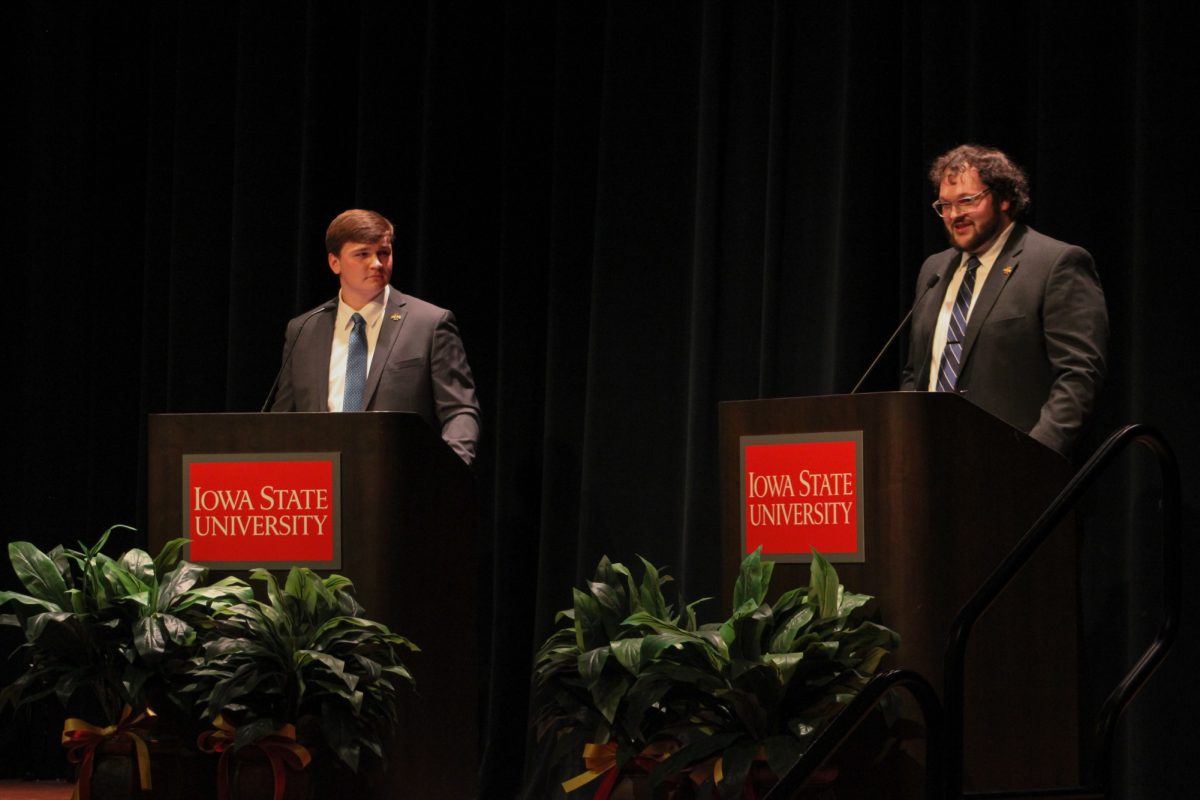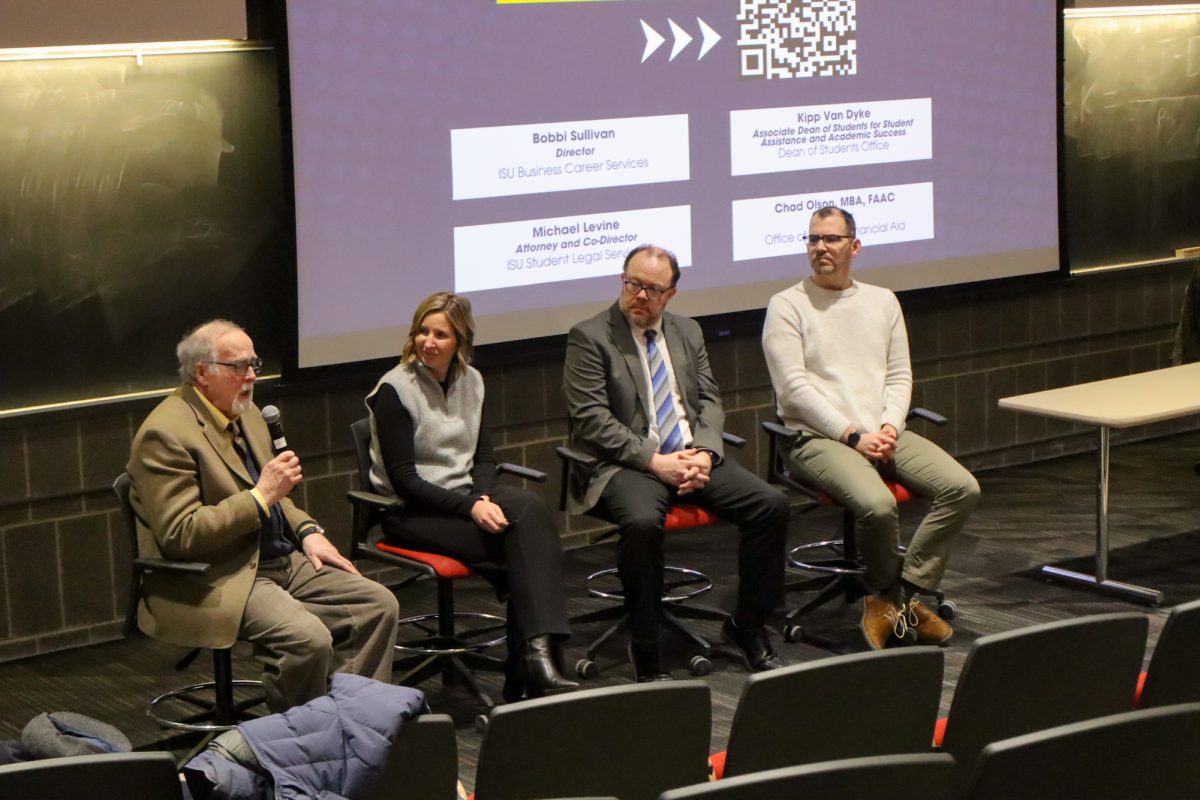`Freshman 15′ might be a myth
August 28, 2001
Being surrounded by a new environment, changing routines and encountering all the stress that comes with college life can cause new students to gain the infamous “freshman 15” during their first year at college.
“It’s probably a combination of things,” said Jean Sneed, dietitian at Mary Greeley Hospital. “It’s the fact that students are away from home for the first time.”
But Douglas Lewis, associate professor of food science and human nutrition, said the “freshman 15” is just a myth.
“I have not found research articles showing that such a thing exists,” he said.
A 2001 study conducted at Iowa State found no sign of excessive overall weight gain among freshmen, Lewis said.
If anything, he said, the “freshman 15” should be called the “freshman 2.3,” according to an unpublished study of 300 students at Kansas State University. He added that, according to a study done at East Coast schools, many freshmen who gain weight lose it by the time they are juniors and seniors.
Students who don’t walk to class and who overeat are likely to gain the “freshman 15,” said Lewis, who teaches a class on the subject, but it’s not a general phenomenon.
Just as many freshmen lose weight during their first year as gain it, he said.
Both Lewis and Sneed agree – many freshmen experience lifestyle changes that affect their weight.
Sneed said that people gain weight any time they have a really stressful period in life, which includes moving to college. Freshmen have the pressure of doing well in school and stress from transitions and living with a roommate.
The all-you-can-eat food service in college cafeterias also can promote weight gain, Sneed said.
Many students also engage in social eating, such as ordering pizza with a group of friends. She said freshmen don’t need to completely restrict their diets, just eat smaller portions.
Alcohol also can play a role in weight gain, although Lewis said it’s not a main cause.
“It can be a contributing factor,” he said, because it can reduce the body’s ability to burn fat.
Gina Shook, freshman in biology, said she thinks drinking alcohol and changing eating habits do the most to cause weight gain.
“I’ve usually associated it with drinking,” she said.
Shook said many former classmates from her hometown seem to have gained weight after returning home from their first years of college.
It’s important, Sneed said, to pay attention to the food on the plate.
“Just to be a little bit more conscious about what you’re eating than what you would otherwise,” she said.
The “freshman 15” can be avoided if freshmen use common sense and eat in moderation.
“Don’t study with a bag of potato chips,” she said.






